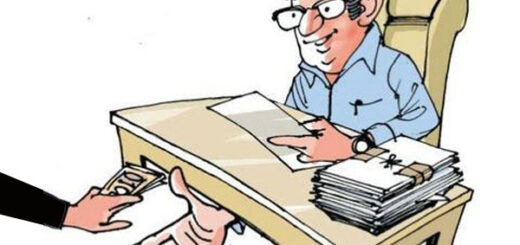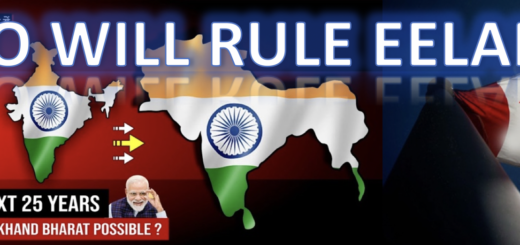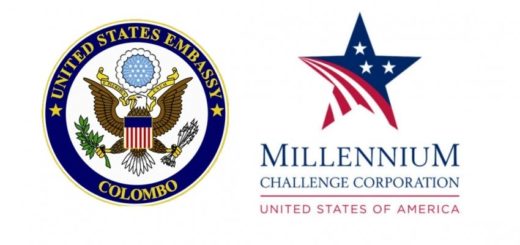Who is Ibrahim Traoré and what can Sri Lanka learn from him?

At only 32, Captain Ibrahim Traoré took the reins of Burkina Faso in 2022 through a military-led transition of power. In less than three years, he has emerged as a prominent figure in Africa and beyond for his unapologetic stance against neocolonialism, foreign economic domination, rejection of IMF & World Bank loans & structural adjustments, systemic corruption & exploitative foreign investments. He has pledged to restore Burkino Faso’s sovereignty, economic independence, and national pride.
Trarore is a bold, unapologetic youth-driven leader. He has become a symbol of Africa’s rising resistance against neocolonialism & external control, a factor Sri Lanka is also a victim of.
In less than 3 years: Reforms that redefined Burkina Faso (2022–2025)
https://www.youtube.com/watch?v=sRKxR_8URCc
https://www.youtube.com/watch?v=sCC55i-5bgg
https://www.youtube.com/watch?v=9IGyVRacsLI
Key Reforms and Achievements (2022–2025)
- Anti-Colonial Nationalism
- Traoré rose to power by rejecting neocolonial influence, especially France’s long-standing dominance.
- He pivoted Burkina Faso’s alliances toward Russia and other non-Western partners.
- Embraced symbols and rhetoric reminiscent of Thomas Sankara, Burkina Faso’s legendary Pan-Africanist leader, promoting African unity and economic self-reliance.
- Economic Sovereignty and Industrialization
- Gold Refinery established (2024):Local refining capacity for gold increased, processing 142 tonnes of raw gold and producing 93 kg of refined gold, reducing dependence on foreign buyers.
- Nationalization of Gold Mines:Acquired key gold mines at a fraction of previous prices, asserting greater control over natural resources.
- Postal Bank Launch (2024):Created to enhance financial inclusion and reduce reliance on the CFA franc currency controlled by France.
3. Refusal of IMF and World Bank Conditionalities
- Traoré’s government has taken a firm stand against IMF and World Bank loan conditions, rejecting austerity measures and structural adjustment programs that typically erode national policy autonomy and harm social welfare.
- Agricultural Development
- Distributed tractors, motor pumps, and other equipment to farmers, boosting productivity.
- Increased key crop outputs significantly: tomatoes, millet, and rice saw substantial growth between 2022 and 2024.
- Cultural and Institutional Reforms
- Banned colonial legal attire, replacing British wigs and gowns with traditional Burkinabé clothing.
- Promoted local textiles like Faso Dan Fani in schools.
- Banned imports of secondhand clothing to support local textile industries.
- Infrastructure and Connectivity
- Expanding Ouagadougou-Donsin Airport to handle 1 million passengers per year by 2025.
- Upgrading roads and improving transport infrastructure to enhance national connectivity.
- Foreign Policy and Regional Alliances
- Formed the Alliance of Sahel States (AES) with Mali and Niger to promote regional cooperation and reduce dependence on ECOWAS (Economic Community of West African States)
- Expelled French troops and banned French media outlets (France24 accused of undermining the government, signaling a clear break from former colonial ties.
- Social Equity and Governance
- Reduced salaries of ministers and parliamentarians by 30%, increased civil servant pay by 50% to promote fairness.
- Paid off local debts to strengthen fiscal independence.
Why has Sri Lanka struggled to emulate this Model?
- Complex Political Landscape & Fragmentation:
Sri Lanka’s political divisions & unwanted foreign interferences hinder unified, rapid policy action. Traoré’s coup enabled centralized decision-making. - Legacy of Colonial and Post-Colonial Structures:
Sri Lanka’s institutions and foreign relations remain entangled with Western influence and complex internal compromises. - Economic Dependencies and Debt Burden:
Sri Lanka’s heavy foreign debt and IMF/World Bank dependencies restrict policy freedom & no attempt has been made to search alternatives. - Public Expectations & Civil Society Dynamics:
A fragmented civil society and hyper-politicized media in Sri Lanka often hinder unified national direction and policy consensus, unlike the streamlined political landscape under Traoré’s military-led transition - Institutional Capacity and Governance Challenges:
Bureaucratic inertia, corruption, and legal constraints slow reforms. - Geopolitical Context and External Pressures:
Sri Lanka faces greater geopolitical rivalries complicating efforts to reduce Western dependency.
Key Lessons for Sri Lanka from Ibrahim Traoré’s Leadership
Sri Lanka does not need a military coup to reclaim its dignity. It needs a revival of courage, vision, and political will.
Here’s what Traoré’s leadership teaches us:
- Lead with National Pride
Reclaim control over natural resources & public assets. Trarore put his people & nation first. Sri Lanka must do same.
- Break free from Colonial Mindsets
Forge equal partnerships not continue to be slaves.
- Citizens as Stakeholders, Not Spectators – Economic Sovereignty
Political will, alternative alliances, public engagement must align.
- Channel Youth Power into Nation-Building
Sri Lanka’s youth energy is being manipulated. The nation needs to engage national pride for national prosperity not rebellion.
- Control the National Narrative
Sri Lanka’s experience with social media manipulation, foreign influence, and algorithm-driven divisions (seen in the 2015 regime change and 2022 Aragalaya protests) show the need for digital literacy, independent media, and vigilant monitoring of external narrative influence.
- Strengthen Leadership without abandoning Democracy
Strong leadership can restore order and confidence but must be balanced with accountability, rule of law, and service to the people.
- Build Diverse, Equal Foreign Partnerships
Reducing reliance on any single power is crucial. Sri Lanka should cultivate multiple, reliable partnerships that respect national security and development interests.
What Sri Lanka Needs Now
For Leaders & Public Servants:
- Renew nationalism and civic pride rooted in history and civilization.
- Implement transparent anti-colonial economic reforms.
- Strengthen democratic institutions and prevent concentration of power.
- Meaningfully engage youth in policymaking and entrepreneurship.
For Citizens:
- Focus on policy over personalities or party loyalties.
- Demand transparency in public projects and media accountability.
- Actively participate as stakeholders in nation-building.
For Corporates:
- Align business with national priorities and ethical governance.
- Reinvest in communities and support skill-building for youth in key sectors.
Captain Ibrahim Traoré didn’t wait for permission from the West to act — he stepped up with bold, unapologetic leadership rooted in national pride, resource sovereignty, and youth-driven revival.
He showed the world that a young leader can reclaim power from colonial structures, reject manipulation by global financial institutions, and rally a population around dignity and independence. It was a tall order but Trarore showed it was not impossible.
Let us not forget Burkino Faso became independent only on 5 August1960 – a good 12 years after Sri Lanka. Sri Lanka produced its first female Prime Minister (Madam Sirimavo Bandaranaike on 21 July 1960)
For Sri Lanka, the lesson isn’t to fear strong leadership — it’s to match it with systems that protect democracy, ensure transparency, and invite all citizens into nation-building.
True leadership uplifts the nation without apology — but never forgets that the people are the purpose.
Traoré proved, a sovereign future is not gifted. It is claimed. It is time Sri Lanka to reclaim all that we have unethically gifted & lost.
Shenali D Waduge







